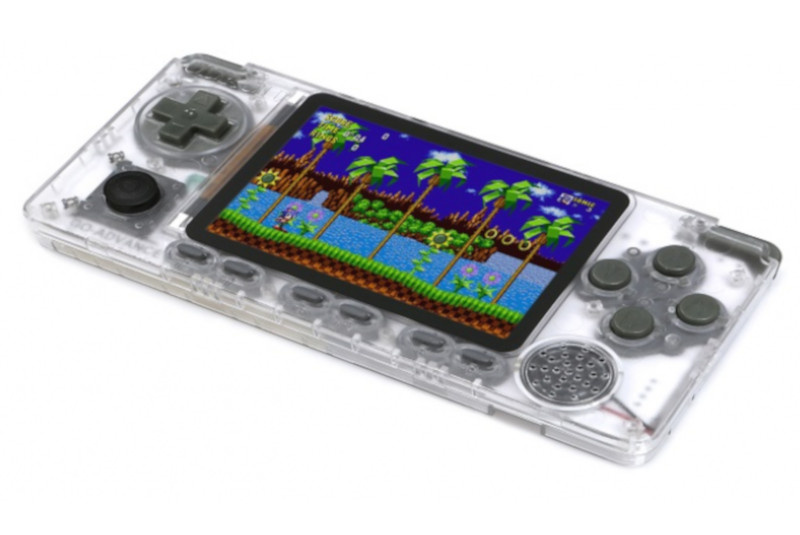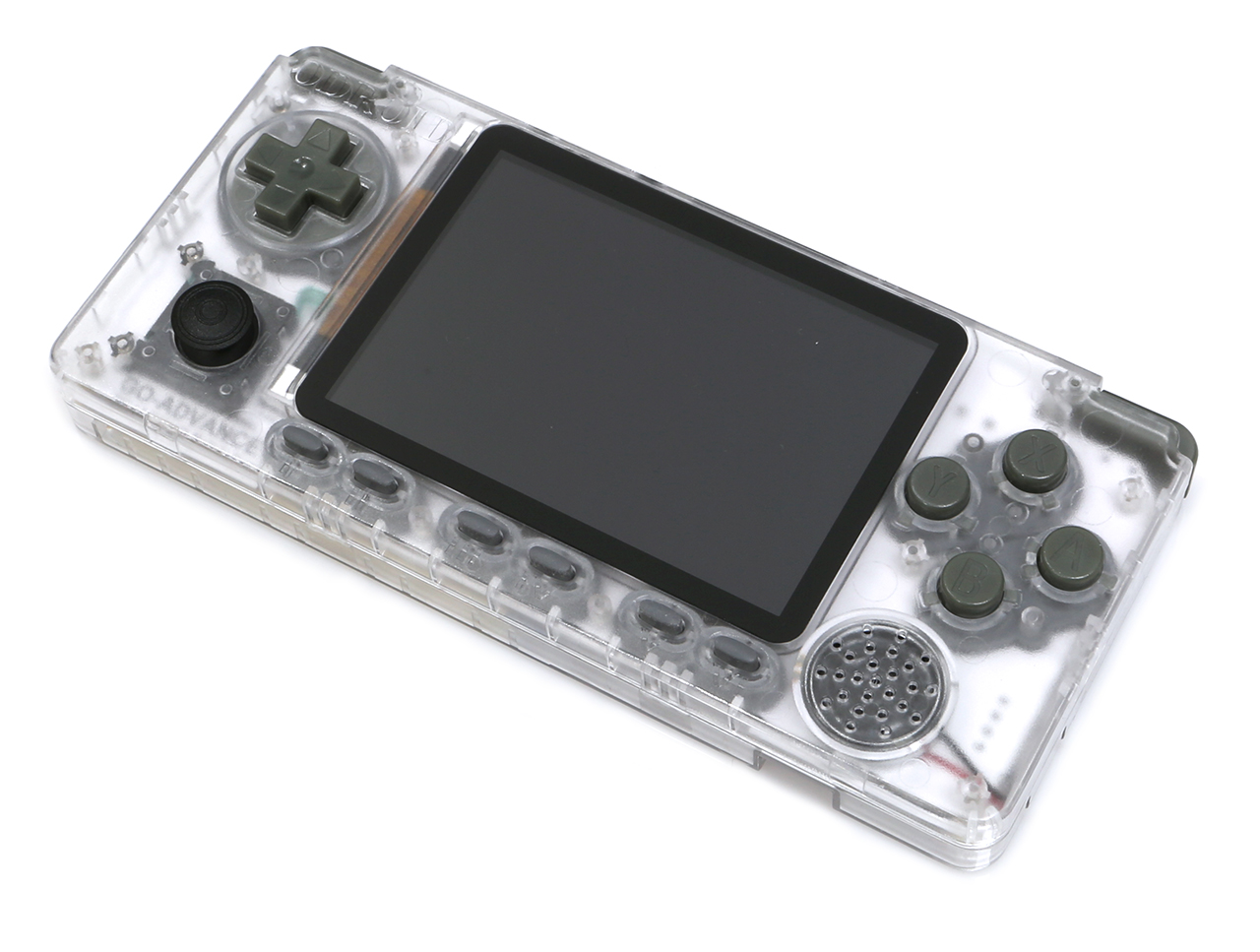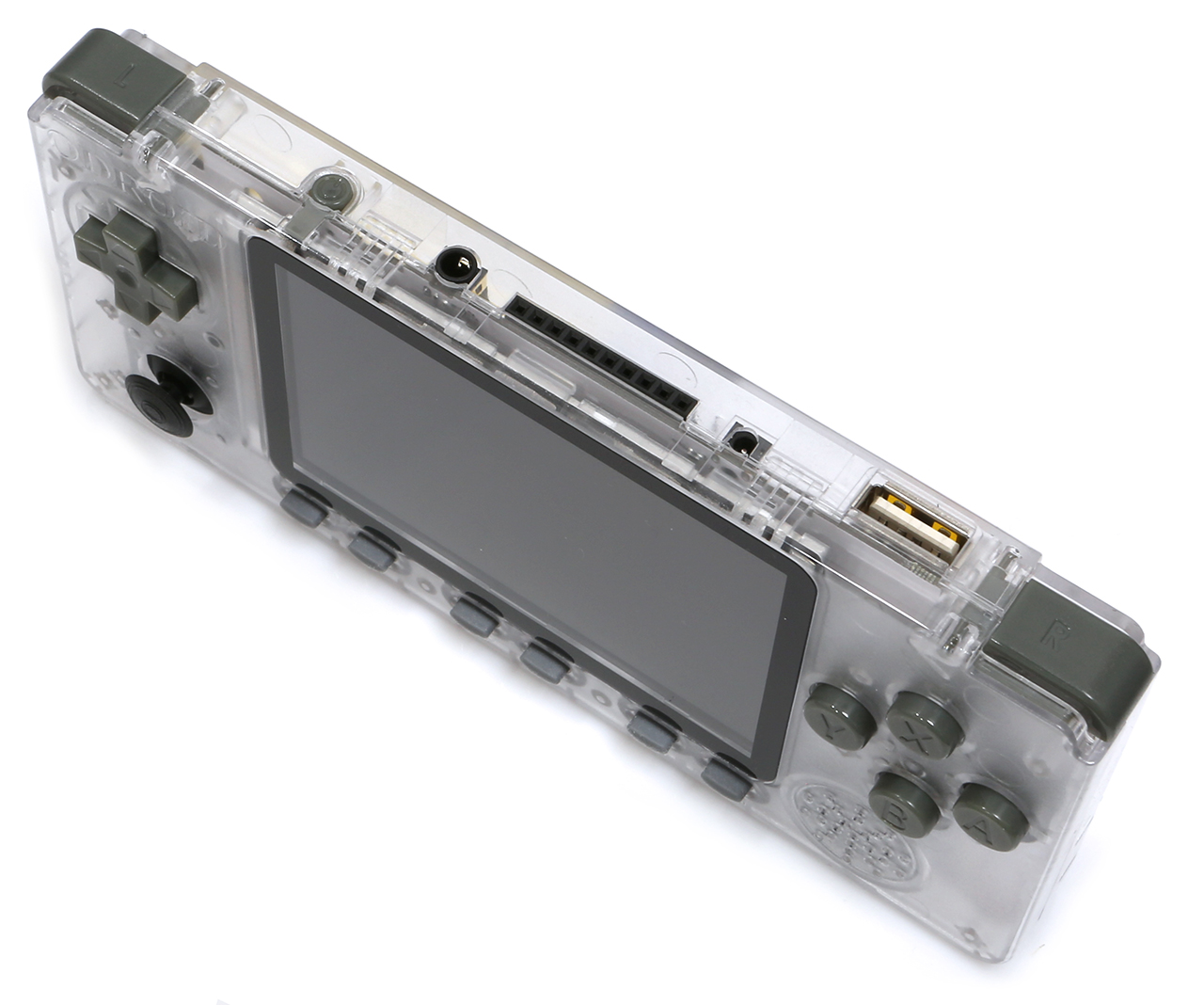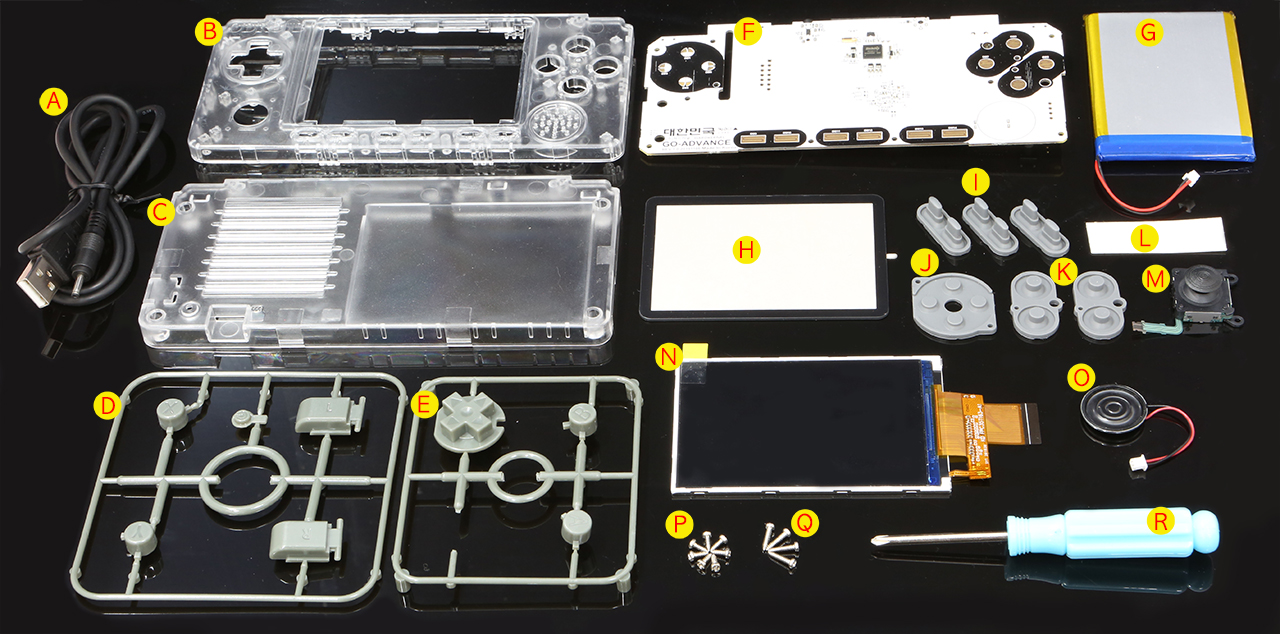
Lights, cameras, and ALL action; Hardkernel has a new single board computer (SBC) portable star, again, and it’s named the ODROID-GO Advance. Targeted as a followup portable handheld gaming device to the popular ODROID-GO 10th Anniversary ESP32 platform, the new ODROID-GO Advance is destined to outshine every other SBC game machine currently on the market. Why? It’s all in the specifications, my dear.

This is the initial foray by Hardkernel into the realm of the Rockchip system-on-a-chip (SoC) lineup and it looks like they’ve hit another “outta the park” homer un with their SBC design. In particular, the ODROID-GO Advance features the Rockchip RK3326 SoC. This quad-core (64-bit) ARM-Cortex A35 processor is running at 1.3GHz with overclocking ability (although, Hardkernel claims overclocking is not practical with attempts at 1.4GHz and 1.5GHz producing sketchy results).
This SoC was announced at the Hong Kong Electronics Fair 2017. At that time, it was destined for incorporation into 2-in-1 tablets; which means that this Rockchip choice is a very powerful SoC. Along with this proposed tablet inclusion, the RK3326 SoC was claimed to already have Android 7.1 support. Meaning that both an Android OS and an Ubuntu derivative OS are able to run on the RK3326. Couple this little nugget of information with a rumor that I just heard from a little bird and we can (or, should) expect Android support coming “real soon after the release” of the ODROID-GO Advance. Once this Android release hits the ODROID community, you will have the potential for a superior dual-booting handheld phenom device.
Correction
Well, that didn’t take long. Just as this column was going to press, I was informed that the “imminent” release of the previously mentioned Android OS for the ODROID-Go Advance has now been officially shelved! Granted, another source could develop an Android OS for this handheld, but, as of today, my rumored developer is NOT going to continue working on Android for the ODROID-GO Advance.

Rounding out the rest of this game platform’s specifications lends further support to the ODROID-GO Advance potential for a destiny of greatness:
- Quad-core Mali GPU
- Support for 1GB DDR3 RAM (the memory interface is 32-bit)
- SPI Flash storage
- MicroSD card support
- 3.5-inch TFT LCD with 320x480 resolution
- ½ Watt Mono speaker with audio output jack
- 3,000mAh LiPo rechargeable battery
- DC power jack for 2.5mm plug
- USB 2.0 Host port
- 10-pin GPIO
- 10x Input buttons
- D-Pad
- Left/Right shoulder triggers
- Analog joystick
All of this specification goodness is packaged together as a do-it-yourself (DIY) kit. Assembly is a lot more fiddly than with the ODROID-GO ESP32 edition. Beware of ribbon cable holder clamps, screw tightness, and LCD insertion. Read the instructions thoroughly before your begin assembly of the ODROID-GO Advance.

At the time of release, the ODROID-GO Advance will operate with an Ubuntu Minimal EmulationStation OS image. Remember, though, there is the distinct possibility that an Android OS release could follow close on the heels of this Ubuntu OS (see Correction, earlier in this column; Ed.). This EmulationStation OS is no slouch, however, as it will be able to support a whole host of game emulators; including: Atari (2600, 5200, and 7800), GameGear, GameBoy, GameBoy Advance, GameBoy Color, MegaDrive, Nintendo, PC Engine, SEGA, and PSP.
Along with this official Hardkernel EmulationStation OS and the “potential” for an upcoming Android OS release, the popular open source Batocera.linux OS (Batocera) will also be available for the ODROID-GO Advance. Enabling retro gamers of the world to rejoice and embrace 8-bit and 16-bit games, Batocera is ready-to-go with onboard emulators featuring RetroArch, Kodi, mupen64, and PPSSPP. All that’s left for you to do is the drudgery of locating ROMs for, ahem, legal game play!

Be the first to comment